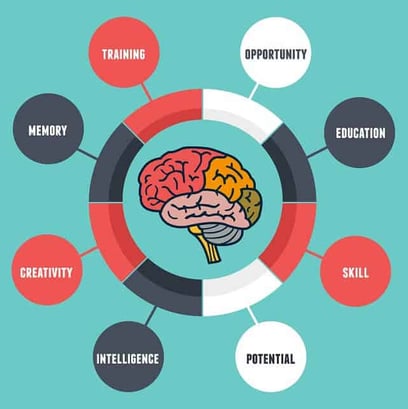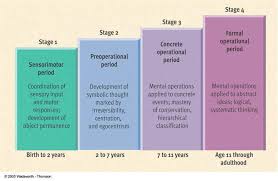



Overview
Piaget’s Cognitive Development Theory explains how thinking, reasoning, and problem-solving abilities evolve across the lifespan. It outlines distinct stages of cognitive growth, each characterized by unique ways of understanding the world, adapting to new information, and refining mental structures.
From sensory exploration in infancy to complex abstract reasoning in adulthood, Piaget’s model provides insight into learning processes, intellectual maturity, and cognitive adaptability. Recognizing where an individual stands within this framework aids in understanding their approach to knowledge, decision-making, and problem-solving.
Life Transitions Readings
Cognitive development influences how individuals process change, acquire new skills, and adapt to evolving life circumstances. Because cognitive growth is not strictly linear but cyclical, people may revisit earlier stages when facing new challenges or transformative life events.
Preoperational Stage (Early Childhood): Development of imagination, symbolic thinking, and early logic. In adulthood, this stage may resurface during creative exploration, artistic expression, or the process of reframing one’s worldview.
Concrete Operational Stage (Middle Childhood to Early Adolescence): Enhanced problem-solving, logical reasoning, and structured thinking. This mode may reemerge in adulthood when navigating practical problem-solving, financial planning, or structuring new life paths.
Formal Operational Stage (Adolescence to Adulthood): Abstract thinking, strategic planning, and hypothetical reasoning. This stage becomes dominant in periods of intellectual expansion, but individuals may shift between concrete and abstract reasoning depending on life demands.
By identifying cognitive strengths and areas of growth, readings can provide guidance on enhancing learning, adaptability, and intellectual problem-solving while acknowledging the cyclic return to different cognitive modes throughout life.
Baby and Child Readings
Piaget’s model helps in understanding a child’s learning style, reasoning ability, and developmental readiness for new concepts. Children move through cognitive stages in waves rather than strict linear progressions, often showing characteristics of multiple stages simultaneously.
Sensorimotor Stage (Infancy-Toddlerhood): Exploration through senses, object permanence, and early motor intelligence. Encouraging interactive play enhances neural connectivity and lays the groundwork for later abstract thinking.
Preoperational Stage (Preschool Years): Symbolic play, imagination, and early problem-solving skills. Children in this stage develop strong internal narratives that shape their sense of reality, requiring caregivers to foster both creativity and logical grounding.
Concrete Operational Stage (School Age): Logical thinking, cause-effect understanding, and structured learning. However, aspects of preoperational imagination may still resurface, particularly in moments of emotional exploration or creative play.
Recognizing a child’s fluid movement between cognitive stages supports tailored educational strategies and developmental encouragement, allowing them to develop both structured reasoning and imaginative flexibility.
Couples Synergy Readings
Cognitive development impacts communication styles, decision-making approaches, and compatibility in relationships. Partners often exhibit different cognitive processing styles, which can either enhance or challenge relational synergy.
Abstract vs. Concrete Thinking: A partner in the formal operational stage may value deep discussions, philosophy, or abstract reasoning, while a partner who leans more toward concrete operational thinking may prioritize practical problem-solving and real-world applications.
Cognitive Adaptability: A couple’s ability to navigate conflict and decision-making depends on their cognitive flexibility. If one partner tends to revisit earlier stages (e.g., relying on intuitive, preoperational responses), while the other expects structured reasoning, misunderstandings can arise.
Shared Growth Mindset: If both partners remain cognitively adaptable, they can shift between different modes of thinking depending on relational needs—oscillating between emotional exploration, logical problem-solving, and visionary planning as necessary.
By understanding how cognitive development cycles influence communication and decision-making, couples can enhance mutual understanding, deepen relational harmony, and foster collaborative thinking that supports personal and collective growth.